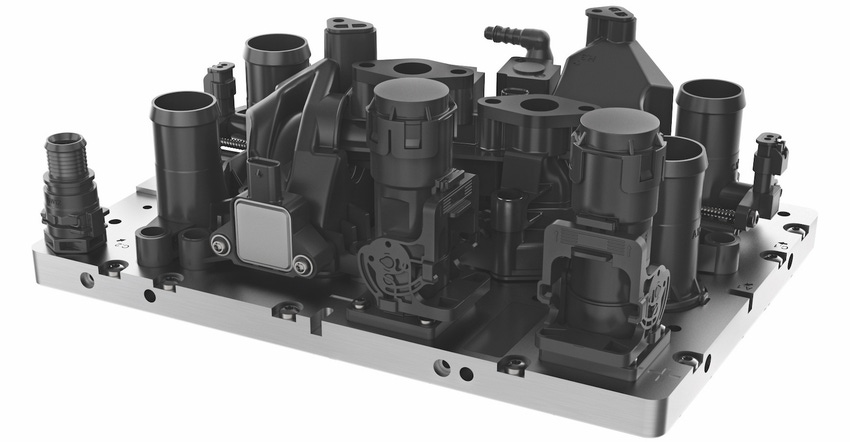DuPont Fuel-Cell Technologies Meet Flexible Design Goals
Polyamide and PBT deliver on performance in modular design fuel cell for multiple transportation modes.
January 12, 2022

EKPO Fuel Cell Technologies, a joint venture (JV) between automotive Tier suppliers ElringKlinger and Plastic Omnium, was formed in March 2021 to develop and industrialize fuel-cell technology to accelerate the development of hydrogen mobility. The JV benefits from both companies’ expertise in industrial-scale production to supply stacks and components in large volumes with the help of highly efficient automated manufacturing processes fully audited for proven automotive quality.
The new company quickly got to work, and one of its first commercial successes is the NM5-EVO fuel-cell stack platform. The platform delivers high power density in a flexible, compact design that enables its application by OEMs in many makes and models of cars and commercial and heavy-duty vehicles in various applications and systems.
Hydrogen fuel-cell technology has potential for range of mobility applications
Hydrogen-based technologies are of significant interest to the global automotive industry because of their ability to greatly reduce CO2 emissions. In fact, if the hydrogen is generated from renewable resources, the drive system that relies on the fuel-cell technology can be considered CO2-neutral. Hydrogen fuel-cell technology is being considered for a variety of vehicles, from cars to long-haul trucks to light commercial vehicles, and even for ships, trains, and aircraft.
Designing and manufacturing a powerful, modular, and compact fuel-cell stack is a significant engineering feat. The experts at EKPO collaborated closely with engineers and scientists at DuPont to identify a material that was up to the challenge.
The NM5-EVO is a platform intended for use on different types and models of vehicles. Its design includes standardized automotive fluid and media connections, an anode loop with integrated water separator, purge and drain valves, as well as other necessary connections and sensors, all packed into a housing. Besides the media supply, a cell voltage measurement unit is integrated, mounted with components molded with DuPont Crastin PBT. The need for safe and reliable operation under various conditions (including freeze start of -30°C) and lifetime requirements challenged the team.
Enormous demands placed on plastic parts
Each cell in the stack needs to function independently, and this places enormous demands on the thermoplastics selected for the many components of the media supply. These polymer parts must perform under aggressive conditions, with different fluids, in a very small space. EKPO had experience manufacturing these components using various thermoplastic materials but was seeking a material that offered greater processability.
To support the engineering team at EKPO, DuPont fine-tuned an established grade from its range of Zytel HTN EF electrically-friendly materials to meet the special demands of fuel cell components. The new grade was optimized to enable extremely efficient molding and laser welding. Together, these supported the customer’s goals for efficient production and also enabled the compact, complex design.
Importantly, the solution also offers extremely high levels of purity, which is critical to ensure there is no reaction with the fuel-cell medium or poisoning of the cells. The high CTI value of this special DuPont solution gave it a significant advantage over the previously used material.
Further, the Zytel material’s dwell time and resistance to flash buildup helped EKPO optimize injection molding machine efficiency. Dimensional stability and the resistance to aggressive fluids and internal pressure up to 2.5 barA (absolute) ensured components molded from the material would remain safely leakproof through the long, useful life of these fuel-cell stacks.
Components manufactured from DuPont Zytel HTN EF include media modules, cathode end plates, anode endplates, and gasket carriers. In addition, the cell voltage measurement side covers are molded from Crastin PBT.
About the Author(s)
You May Also Like



